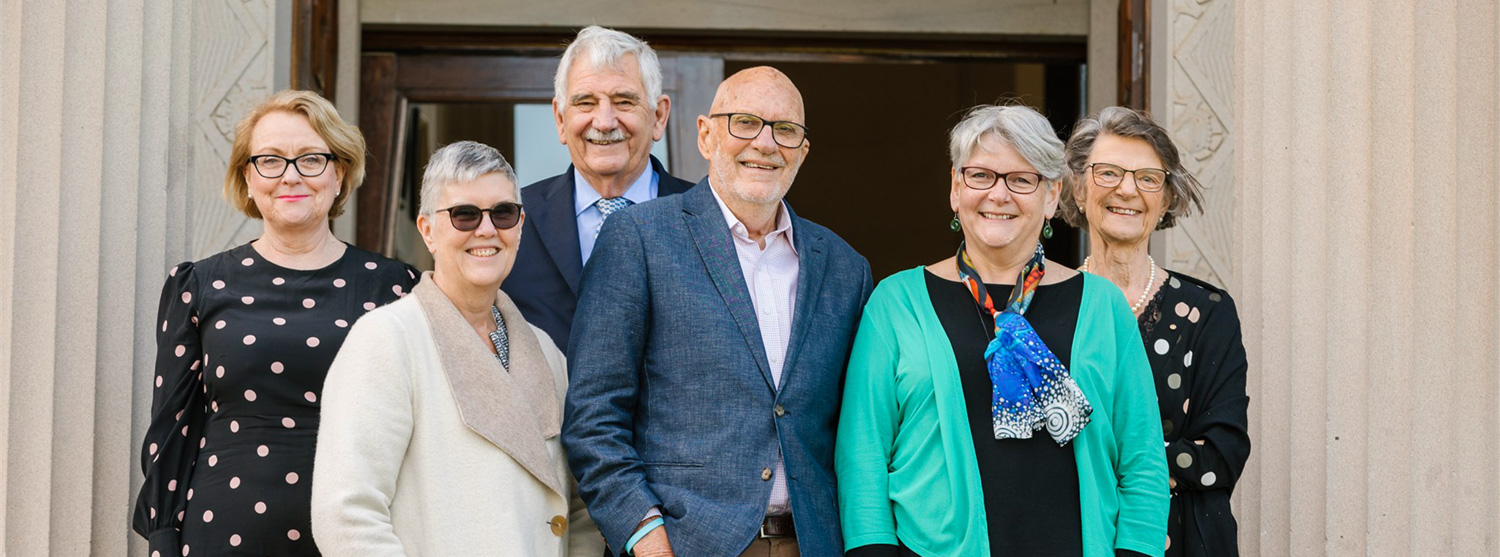40 years of APC
Since 1982, APC has played a role in assuring quality in pharmacy education. In 2022, we celebrated our 40th anniversary.
Our growth and the trust placed in APC is testament to the calibre of leadership and staff over 40 years. It’s positioned APC at the forefront of standard setting for education and training, whilst innovation and flexibility have ensured we remain dynamic in responding to the changing needs of Australian communities.

Pictured: Debra Rowett, Sue Kirsa, Lloyd Sansom, John Low, Bronwyn Clark, Elizabeth Frost
Pictured above are APC’s former and current Presidents, Chairs and CEOs. We’ve come a long way since developing the first examinations for overseas-trained pharmacists in 1982. Back then we were led by the renowned Emeritus Professor Lloyd Sansom AO.
“Back in 1971, I don’t think anyone around the table even knew how to spell psychometrics. Never heard of it. And then we hired Peter Robinson, and all of a sudden, we had a scientific basis. What we’ve got now are examination processes as rigorous as I have ever seen. [They] are defensible, are relevant. Compared to the yellow cards under the bed, we’ve moved an enormous way,” Professor Sansom
Watch this short video from our 40th anniversary event:
Outcomes-based accreditation standards
We are now leaders in the development and implementation of outcomes-based accreditation standards and performance outcomes for pharmacy nationally and internationally.
“The profession of pharmacy really at that time led a focus on outcome-based accreditation standards. Perhaps in advance of the other health professions, we were really looking at what the outcomes were. That was an important change. And we’ve had 2 iterations since then.” – Professor Debra Rowett
Responding to the changing nature of healthcare
“What we’re finding now is that the accreditation standards are nimble enough to support where pharmacy education might go in the future.
“We don’t have a crystal ball, but there might be a number of models that come about for pharmacy education. The accreditation standards now incorporate both undergraduate and intern programs, they’re flexible to cover integrated programs, they’re a solid framework for whatever direction our profession decides pharmacy education might go in. And they allow us to be consistent with practice we’re seeing internationally.” – Associate Professor Kirstie Galbraith
Cultural competence to cultural safety
Alex Burke, Wiradjuri man appreciates the importance that is being placed on embedding cultural safety within pharmacy education.
“Especially with the move from cultural competence, which is a one-and-done thing, to cultural safety which is a life-long journey. You’ll never be able to be competent in this type of thing, it’s something you’re always going to have to learn.” Alex Burke
Alex expressed that universities have a role to play in building a bigger Aboriginal pharmacy workforce, and highlighted APC’s role in supporting universities to embed cultural safety into their curriculum.
Read full article: From knitting needles to outcome-based standards

